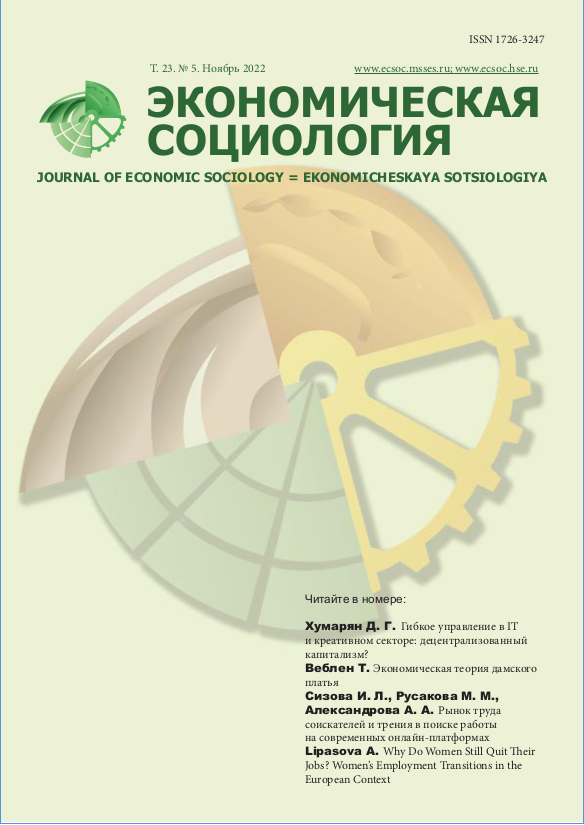Flexible Management in the IT and Creative Sector: Decentralized Capitalism?
Abstract
The article presents the results of the study of the non-material labor organization modes in Russian companies in the IT and creative industries. The paper explores the connection between the flexible structure and the actual form of labor management, and the process of implementation of flexible development methodology (Agile) in the organization of knowledge-intensive firms. The author problematizes the validity of the statement, common in the theoretical and empirical literature, about the relationship between the Agile organizational designs and decentralized forms of management, expressed in the autonomy of labor and reducing the degree of managerial control. The study aims to empirically test the thesis using data from 30 interviews with middle management of companies that combine organizational flexibility and flexible management approaches. The purpose and the research question are based on the analysis of the current literature in the field of organizational research, management, and labor process theory. The description of the research results is divided into two blocks—the analysis of management practices at the “periphery” of the flexible firm, and the management processes in its “core” (following the terminology proposed by John Atkinson). According to the study, Agile management methods form a symmetrical response to the flexibilization of the organizational structure, allowing to improve the quality of management, the degree of transparency, and the predictability of production processes. Implementation of the Agile-methodology is accompanied by standardization and intensification of labor process; the increased role of centralized planning and control; and better accounting of working operations. A deeper division of labor due to the decomposition of operations significantly changes the functionality of management and redefines the balance of power and authority in the firm. The theoretical conclusions of the study indicate that further development of management methods in the described direction can have a negative impact on the quality of professional communication and functioning of horizontally organized professional communities within the firm, and can also decrease productivity in knowledge-intensive industries.













